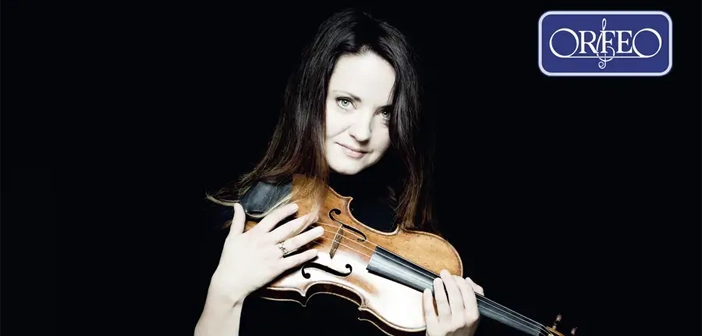This page is also available in / Cette page est également disponible en:
![]() Francais (French)
Francais (French)
-
Orfeo4
 Among the epic achievements of Benjamin Britten, the concertos get forgotten. They date from his twenties and betray Viennese traces – specifically, the edge-of-tonality, emotional overload of Alban Berg and the sweeping statements of Gustav Mahler. There are two piano concertos, one for left-hand alone, one for violin, and a double concerto completed posthumously. London orchestras go for years without programming any of them, which is symptomatic of a deep-seated English cringe.
Among the epic achievements of Benjamin Britten, the concertos get forgotten. They date from his twenties and betray Viennese traces – specifically, the edge-of-tonality, emotional overload of Alban Berg and the sweeping statements of Gustav Mahler. There are two piano concertos, one for left-hand alone, one for violin, and a double concerto completed posthumously. London orchestras go for years without programming any of them, which is symptomatic of a deep-seated English cringe.
The violin concerto dates from 1938-39 and was premiered by the Spanish soloist Antonio Brosa after Jascha Heifetz withdrew his interest. The orchestra was the New York Philharmonic, conducted by John Barbirolli. The concerto bears the weight of the 1940 world on very narrow shoulders. An opening rattling of timpani gives a glimpse of the world on the eve of destruction, an anxiety that deepens in the second movement which practically draws blood from the soloist’s cuticles.
The big stuff is withheld for the finale, where Mahlerian tragedy takes over, along with pre-echoes of Britten’s breakthrough opera, Peter Grimes. The concerto was not an instant success and was revised three times by Britten – 1950, 1954, and 1965 – before he was finally satisfied. He confided to one friend that he had bitten off more than he could chew. However, this concerto has aged well – better, in my view, than William Walton’s – and the Latvian violinist Baiba Skride gives it depth of feeling and breadth of field. This would go down so well at the BBC Proms.
Britten’s double concerto for violin and viola dates from 1932; it was exhumed and completed in 1997 by the composer Colin Matthews. It is a fully engaging work, competently assembled if a little lacking in a compelling idea. The flawless Skride is joined by violist Ivan Vukcevic and the orchestra of Vienna Radio, conducted by Marin Alsop. The Viennese tone is unmistakable, even exaggerated. You would not, at first hearing, think this was the work of an English composer. But when the rhapsody movement is overwhelmed by melancholy, we hear whisperings of the cruel sea and its many mournings.
This page is also available in / Cette page est également disponible en:
![]() Francais (French)
Francais (French)














